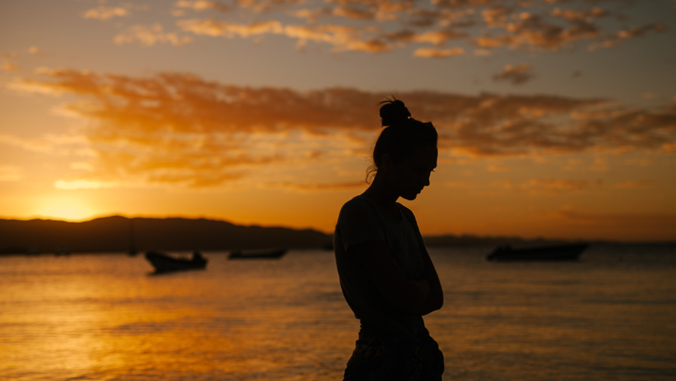 A surge of calls to the 988 Suicide and Crisis Lifeline one year after the Lahaina wildfires underscores urgent need for expanded Hawaiʻi-based mental health support services. However, limited local resources have caused many calls to be rerouted to out-of-state services, exposing critical gaps in local mental health infrastructure. These findings were published in JAMA Network Open on November 20.
A surge of calls to the 988 Suicide and Crisis Lifeline one year after the Lahaina wildfires underscores urgent need for expanded Hawaiʻi-based mental health support services. However, limited local resources have caused many calls to be rerouted to out-of-state services, exposing critical gaps in local mental health infrastructure. These findings were published in JAMA Network Open on November 20.
"Since the wildfire, we have seen a persistent rise in mental health distress," said Alex Ortega, professor and dean of the Thompson School of Social Work & Public Health at UH Mānoa and senior author of the study. "The aftermath has created a layered crisis with increased depression, anxiety, and substance use and suicidality issues exacerbated by the trauma of displacement and, in some cases, insensitive encounters with officials and tourists."
The research, part of the National Institutes of Health (NIH)-funded Maui LOA (Learnings to Overcome Adversities) study, analyzed 988 Lifeline call data from July 2022 to August 2024. The study found that call rates rose from 97.5 to 137.4 per 100,000 residents following the wildfire, while in-state answer rates dropped from 90.3% to 77.2%, straining an already overextended mental health response system on Maui.
Urgent need for local resources
We hope these findings will lead to a significant increase in support for mental health care and disaster response tailored to our communities.
—Joseph Kaholokula
The research team led by Ortega and Joseph Keaweʻaimoku Kaholokula, professor and chair of the Department of Native Hawaiian Health at the John A. Burns School of Medicine , emphasized that Maui urgently needs resources to expand local mental health services, increase staffing at call centers, and support on-island providers. The study serves as a call to action, urging local and federal policymakers to address Hawaiʻi's crisis care capacity and provide targeted support to vulnerable communities affected by climate-related disasters.
"The wildfire not only destroyed homes and livelihoods but also severely impacted the mental health of an entire community, particularly for those already facing economic and health disparities," said Kaholokula. "To help residents rebuild their lives and resilience, expanding the mental health workforce with providers who understand Hawaiʻi's unique needs is critical. We hope these findings will lead to a significant increase in support for mental health care and disaster response tailored to our communities."
More related studies to come
This research is the first phase of a $3.8 million NIH-funded study , "Population Health and Health System Resiliency Following Maui's Wildfire Disaster." The five-year project assesses the government's response to the wildfire, with a focus on the physical and mental health impacts on Lāhainā's Native Hawaiian, Pacific Islander, Filipino and Latino immigrant communities. It will also examine barriers to accessing health services and analyze how healthcare utilization has shifted based on factors such as age, ethnicity, and Medicaid eligibility.
The post Hawaiʻi's suicide helpline struggles to meet demand after Maui wildfire first appeared on University of Hawaiʻi System News .






